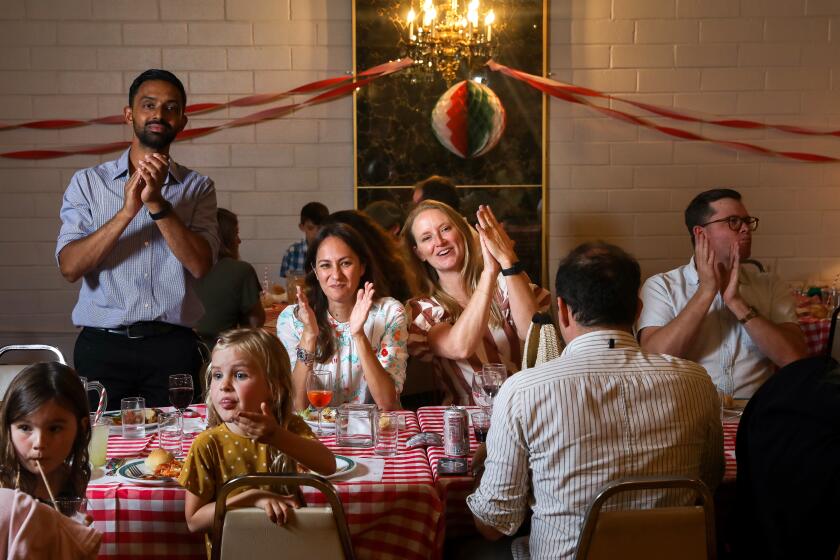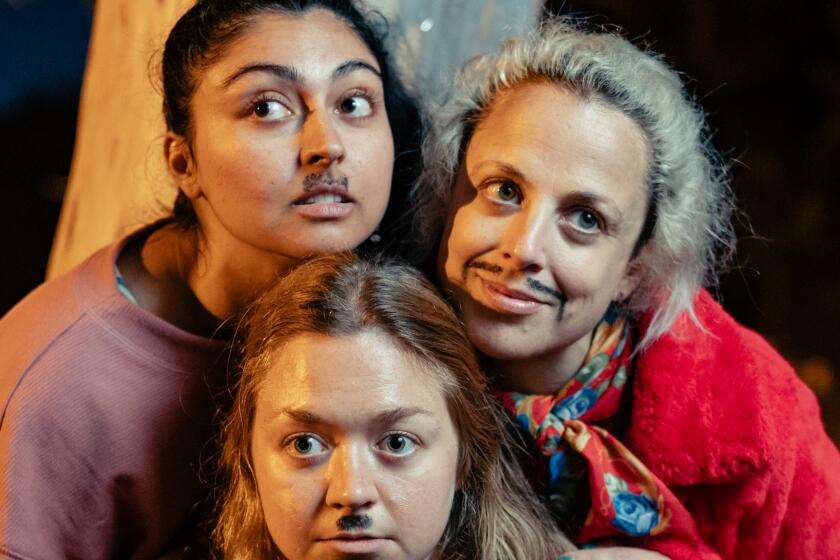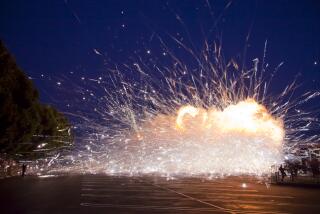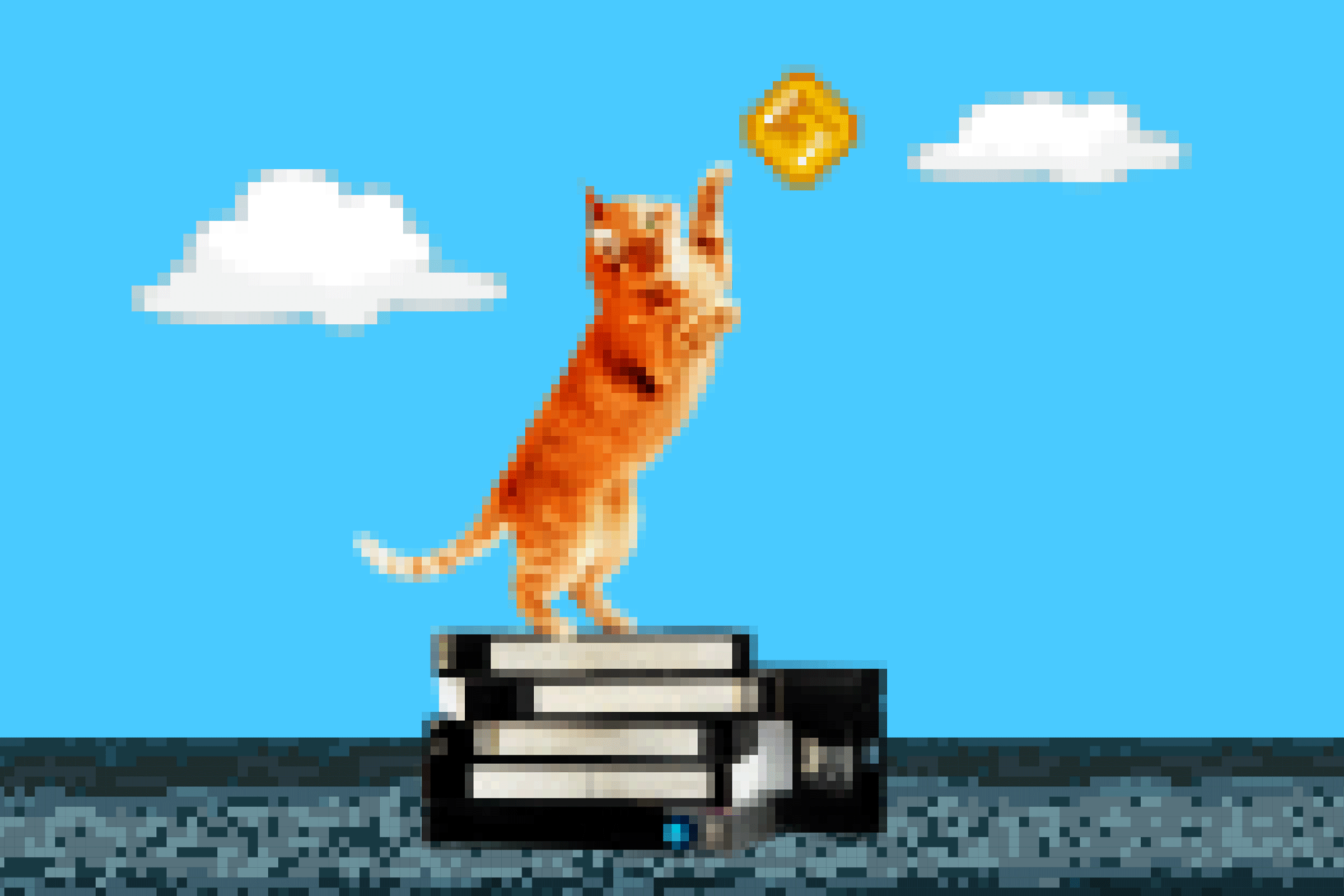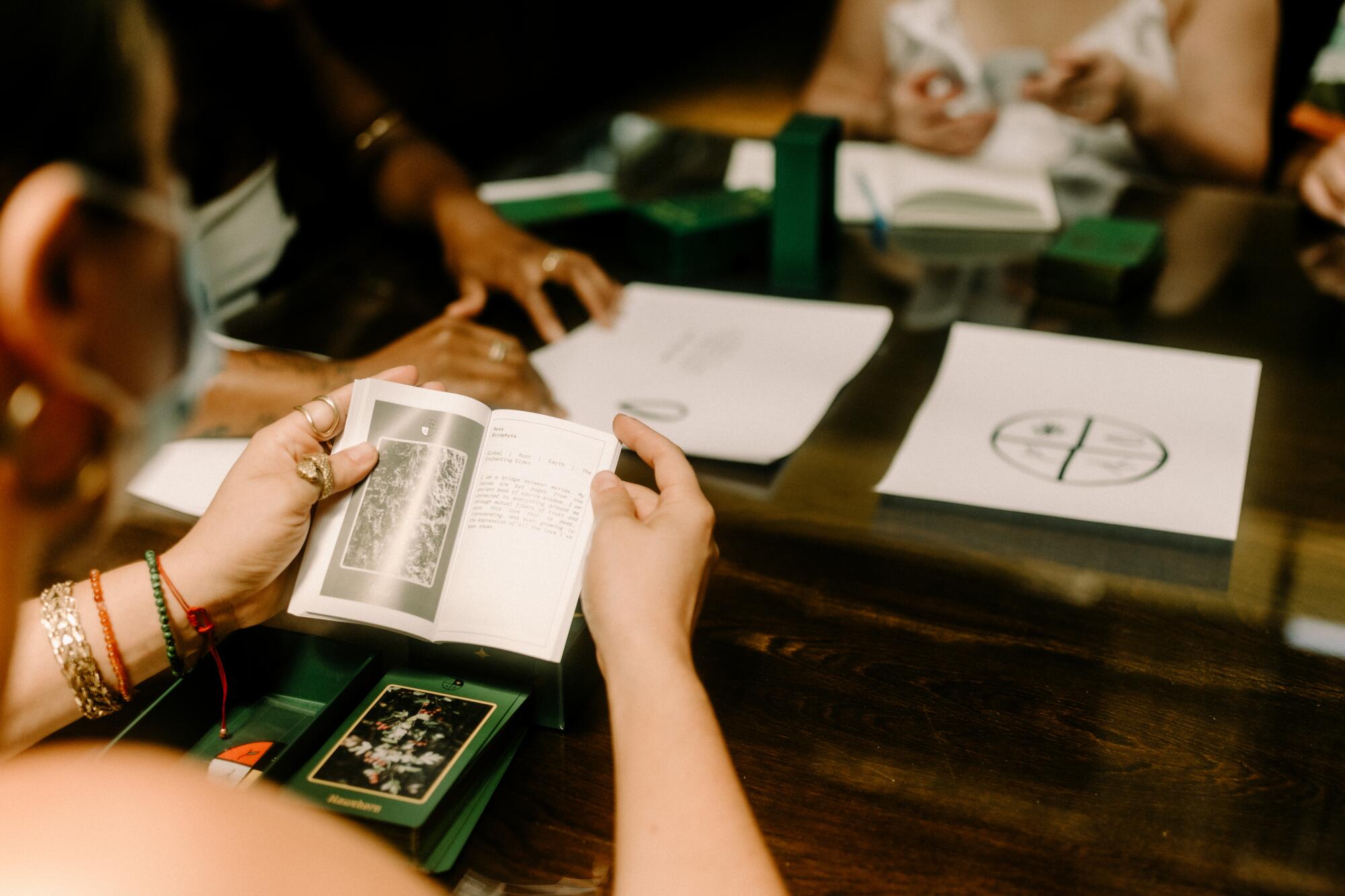
There are two parking lots at the Philosophical Research Society in Los Feliz and on a recent Thursday night, both of them were full.
The monthly meeting of the Death Cafe — an informal gathering to discuss all things related to death and dying — had recently wrapped up in the society’s newly refurbished lecture room, and the 200-seat auditorium was nearly full for a screening of the witchcraft/horror film “Hagazussa: A Heathen’s Curse.” Across the courtyard, an audience of 50 sat rapt in the society’s atmospheric library as six poets read from recent work.
“I’ve dreamt of doing an event here since I was 17 years old,” said poet Jessica Ceballos as she made her way to the lectern after being introduced by the night’s MC, Ross Farrar of the punk band Ceremony. Then she launched into a poem about an octopus garden off the coast of San Simeon.
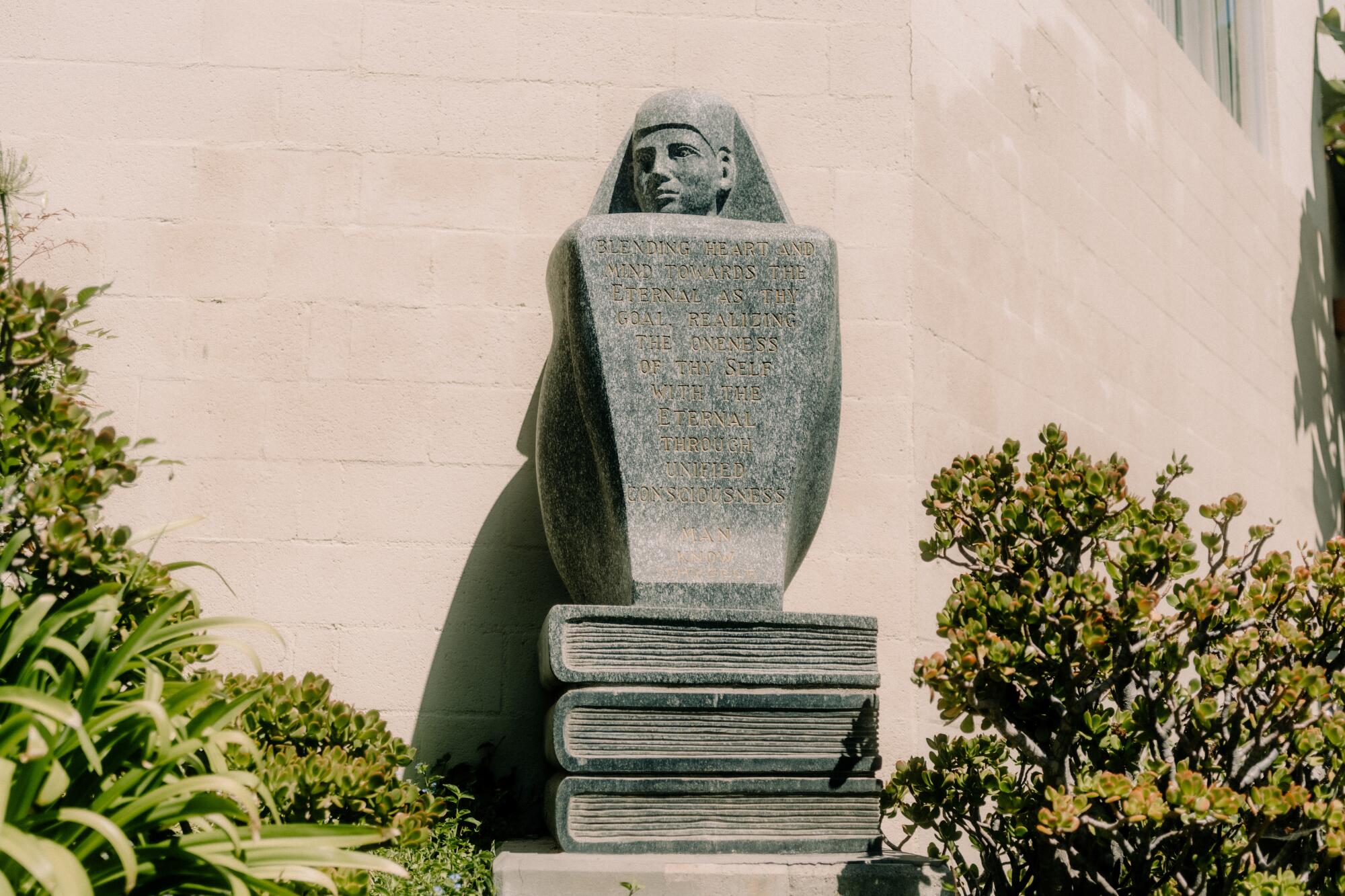
Located at the intersection of Los Feliz and Griffith Park boulevards, the Philosophical Research Society has long been a place of mystery, intrigue and, for some, apprehension. The Mayan Revival campus painted in Southwestern shades of clay, cream and sage was built in 1935 by the celebrated author and esoteric lecturer Manly P. Hall. After his death in 1990, it morphed from a public space dedicated to philosophical and spiritual inquiry to an accredited online university offering degrees in transformation psychology and consciousness studies. Now it is reimagining itself once again, this time as a nonprofit cultural events and art space with an esoteric edge.
“There are so many people who come in here and say I’ve passed by it a thousand times, but I never went in because I thought it was a private university or some kind of crazy satanic cult,” said Executive Director Dennis Bartok, former head of programming for the American Cinematheque’s Egyptian Theatre in Hollywood. “No! We’re a 501(c)3 nonprofit, with a bookstore and a library and a beautiful events space.”
The Garibaldina Society is the oldest Italian club in Los Angeles. Younger members are giving it a new life — and you don’t have to be Italian to join.
On a Saturday morning two days after the Death Cafe, witch screening and poetry reading, a small group introduced themselves around a heavy wooden table in the library before a workshop on initiating a plant spirit oracle deck with artist and healer Star Feliz. In the courtyard, commercial real estate appraiser and board member Ann Burckle led eight curious souls on an architectural tour of the campus.
Before the tour began, Burckle asked if there were any questions. A young woman in a red jumpsuit raised her hand. “Are there any ghosts?” she said eagerly.
Burckle didn’t flinch. “Not that I know of,” she said. “But I do feel an energy here. And we do have the skull of a mass murderer from Germany.”
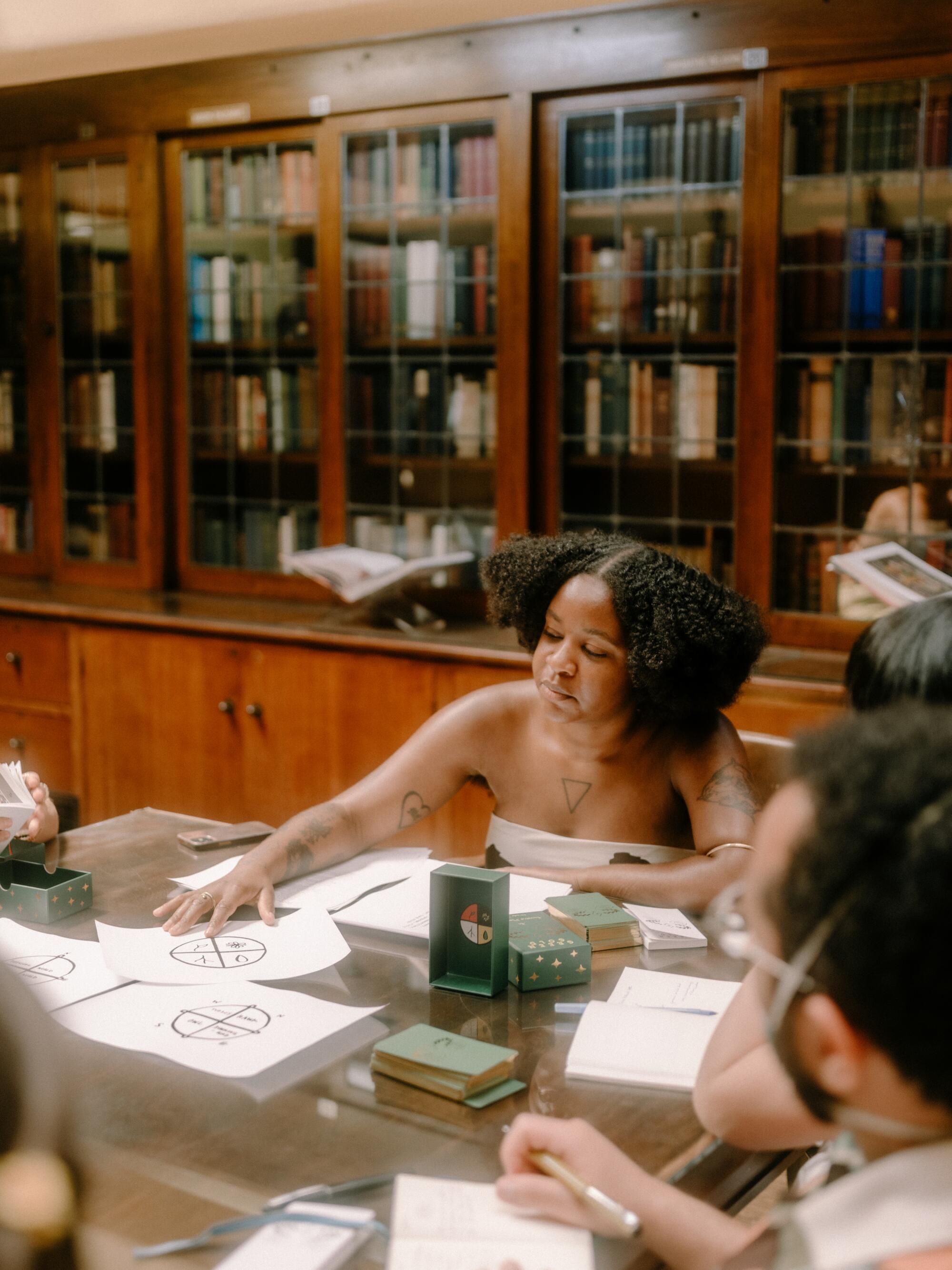
The origins of the Philosophical Research Society date back to the first half of the 20th century, when L.A. was teeming with esoteric and alternative spiritual institutions. Some, like the Self Realization Fellowship and the Krotona Institute of Theosophy, are still around today. Most are long gone. That the Philosophical Research Society was able to survive is a testament to the charisma of its founder, the deep pockets of its supporters and the dedication of the many people — past and present — who believe in its mission.
Six-foot-four with piercing gray eyes, Hall was staggeringly prolific, writing more than 150 books and giving thousands of lectures over his lifetime. His magnum opus, “The Secret Teachings of All Ages,” is an encyclopedia of mystical philosophy that touches on Kabbalah, tarot, alchemy, mystic Christianity and Masonry, among many other subjects. Completed when Hall was just 27, it has sold over 1 million copies and recently was reprinted by luxury art book publisher Taschen.
Hall founded the Philosophical Research Society in 1934 to promote the study of philosophy, comparative religion, mysticism and metaphysics in Los Angeles and beyond. The organization purchased the Los Feliz property in 1935 for just $10 and soon began construction on the arched Mayan-inspired building in what was then a wild mustard field. The original building included a front office, print shop, bindery and library that housed thousands of books and manuscripts — some donated, some collected by Hall on his travels across the globe. A second building with space for a classroom, offices and a library vault was added in 1950. The auditorium was added in 1959. An inscription on its cornerstone reads, “Dedicated to the truth seekers of all time.”
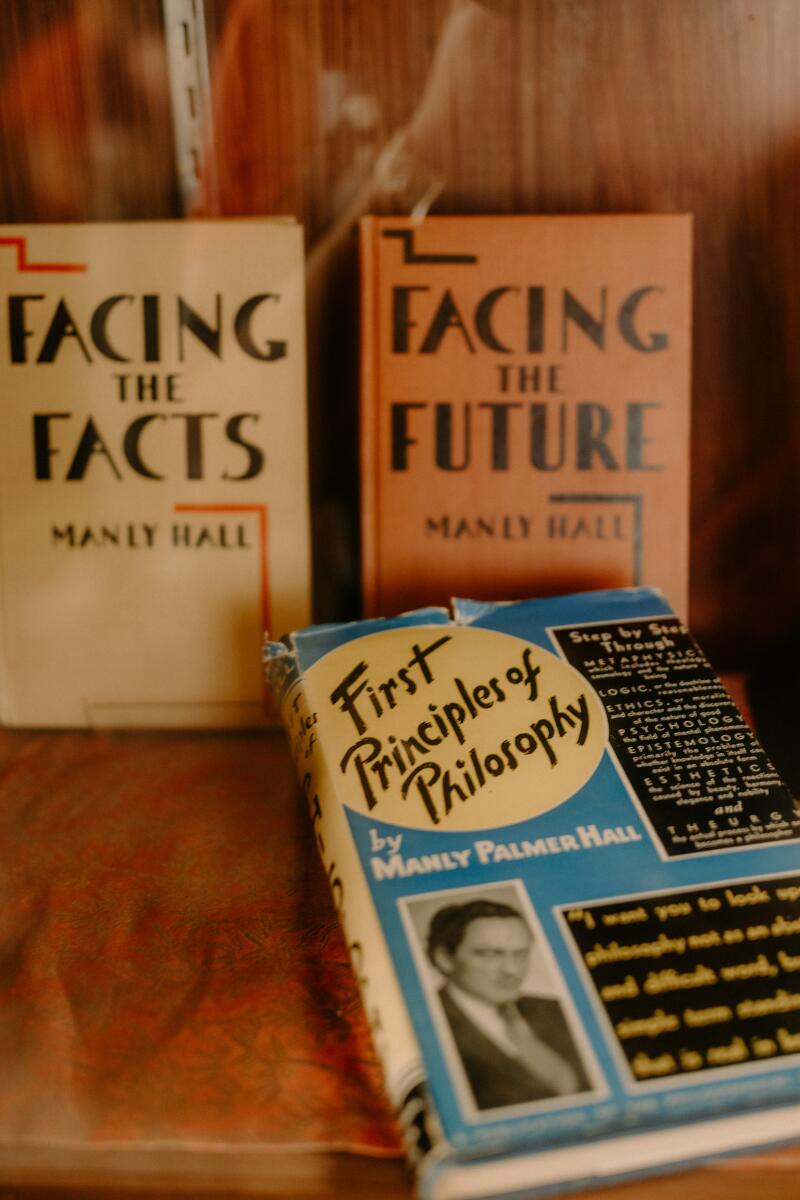
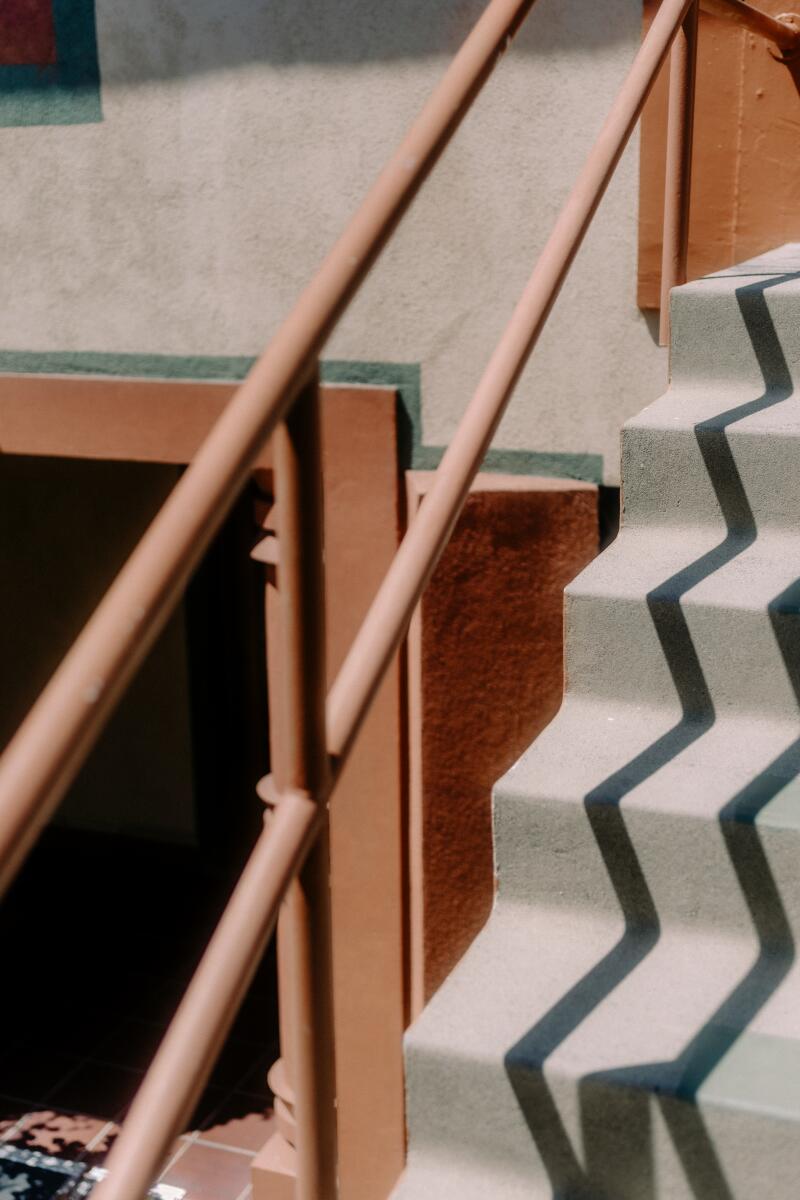
(Elizabeth Weinberg / For The Times)
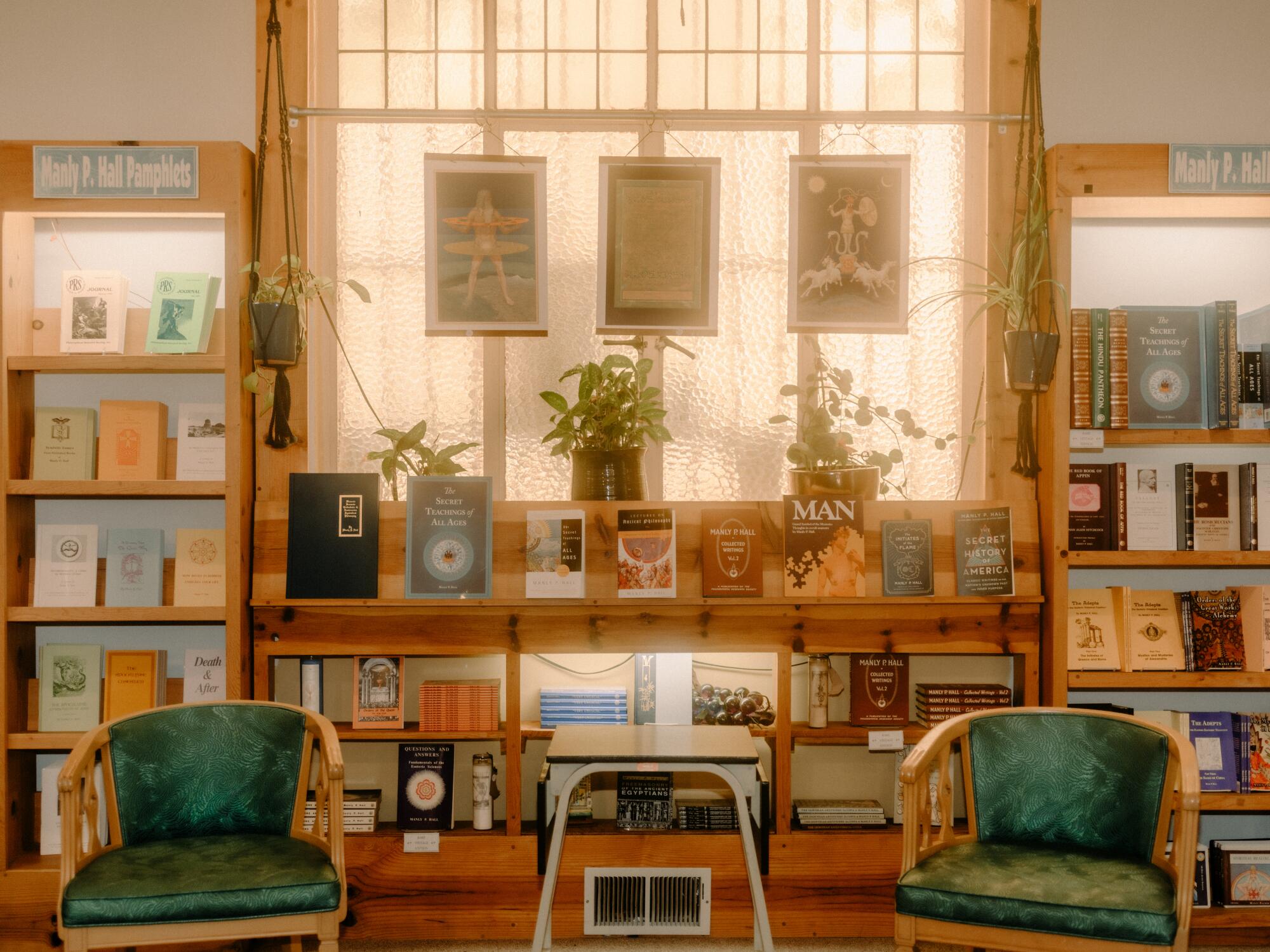
Hall was a universalist and encouraged visitors to use the campus’ resources to aid them on the path of their own spiritual development — whatever that looked like.
“We feel that there is a pressing need for a nonaligned institution, without creed or dogma, where persons of all beliefs can seek a better understanding of life’s plan,” he wrote in the 1982 pamphlet “The Little World of PRS: A Field Tour of the Philosophical Research Society.” “We are all here to grow — to become better and more useful.”
Paramahansa Yogananda found in Los Angeles the perfect home base for an organization which remains a worldwide spiritual force to this day.
Thirty-three years after his death under suspicious circumstances in 1990, Hall’s influence can still be felt. His portrait, painted in oils by the celebrated artist E. Hodgson Smart, dominates the entrance to the auditorium, his bust glares from a corner of the library and his many books and pamphlets are available at the bookstore. The Philosophical Research Society also has reissued a deck of tarot cards created by Hall and his frequent collaborator, artist and set painter John Augustus Knapp. A keepsake edition of Hall’s first book, “The Initiates of the Flame,” will be available by the end of the year.
Even as the Philosophical Research Society broadens its programming to include art-house film screenings and lectures on the neon signs of Hollywood, its core mission to support personal spiritual development remains, said John Pillsbury, who has financially supported the nonprofit through his family’s foundation for decades and is now president of the board.
“Manly once said there are as many religions as believers,” said Pillsbury, who met Hall when he was 15 years old. “We don’t care if you’re Jewish, Buddhist, Taoist or whatever. We want you to be the best whatever you are, and whatever you are evolving into. It’s your path, and if we can help, that’s great.”
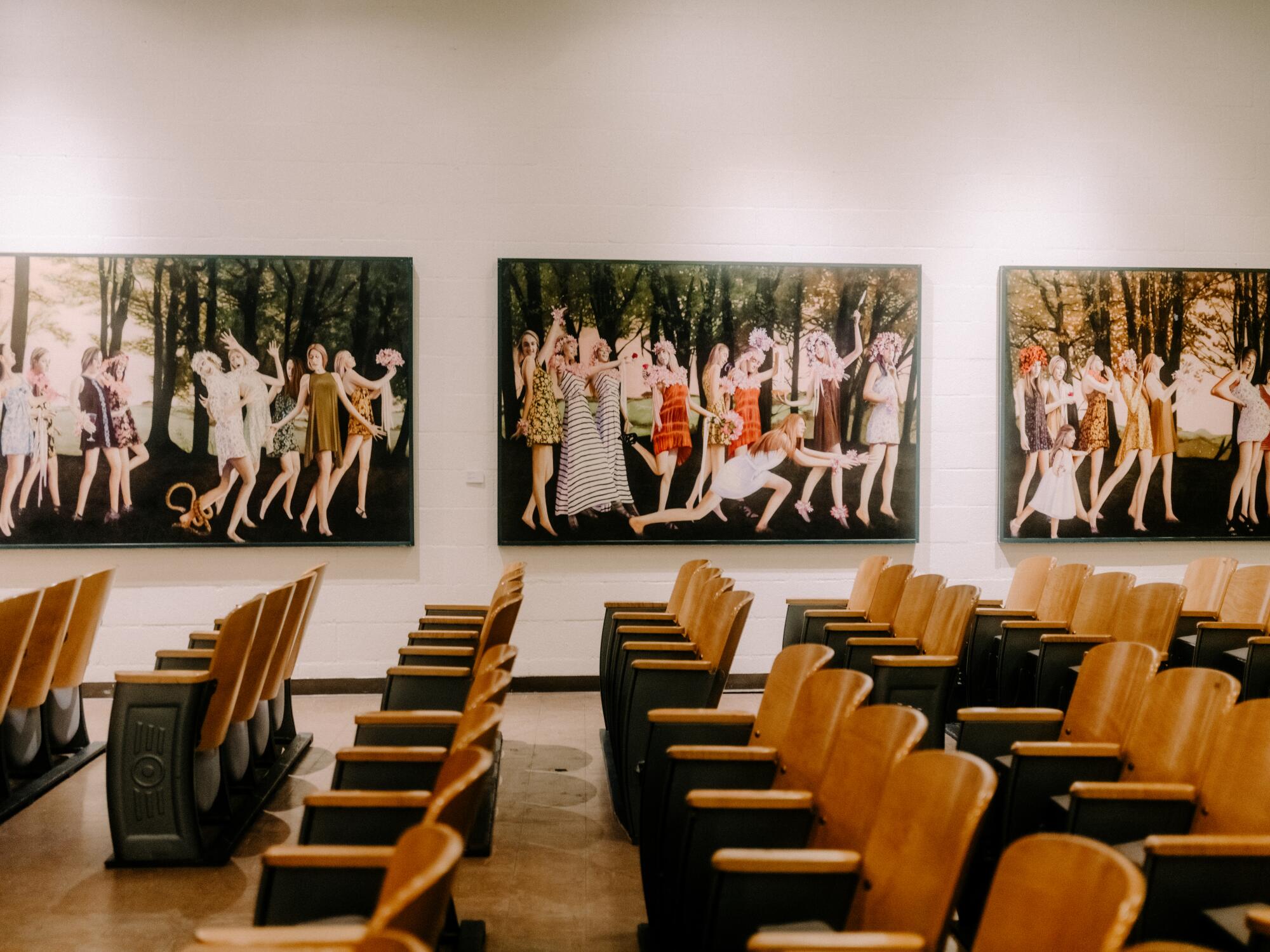
At the same time, he believes opening the campus to a wider range of people — including those who may not be seeking spiritual development — is essential to its long-term survival.
“We have old plumbing that needs work, old wiring that needs work — none of which sounds particularly esoteric or exciting,” said Pillsbury. “Broadening our base has been useful.”
Bartok, who became executive director in May 2022, said the expanded programming has drawn more people in.
“Every show now we ask how many people in the audience have never been here, and invariably between a third and a half raise their hand,” he said.
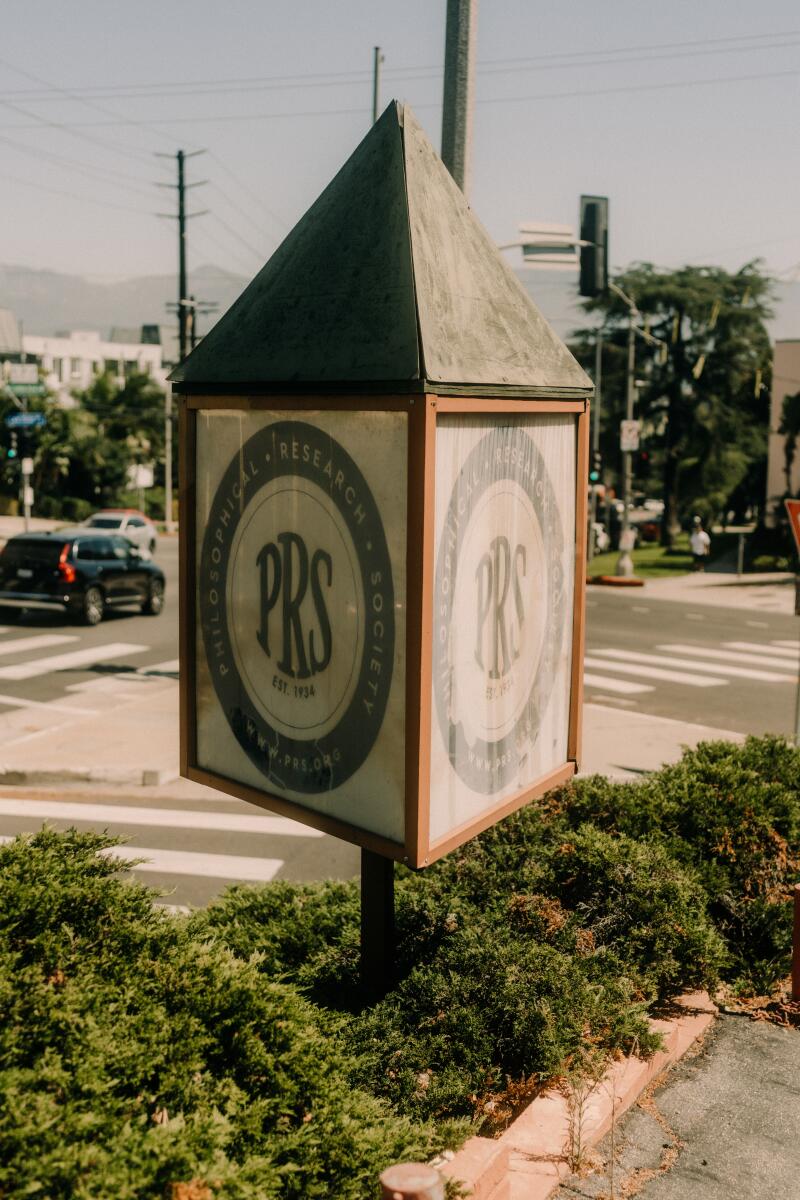
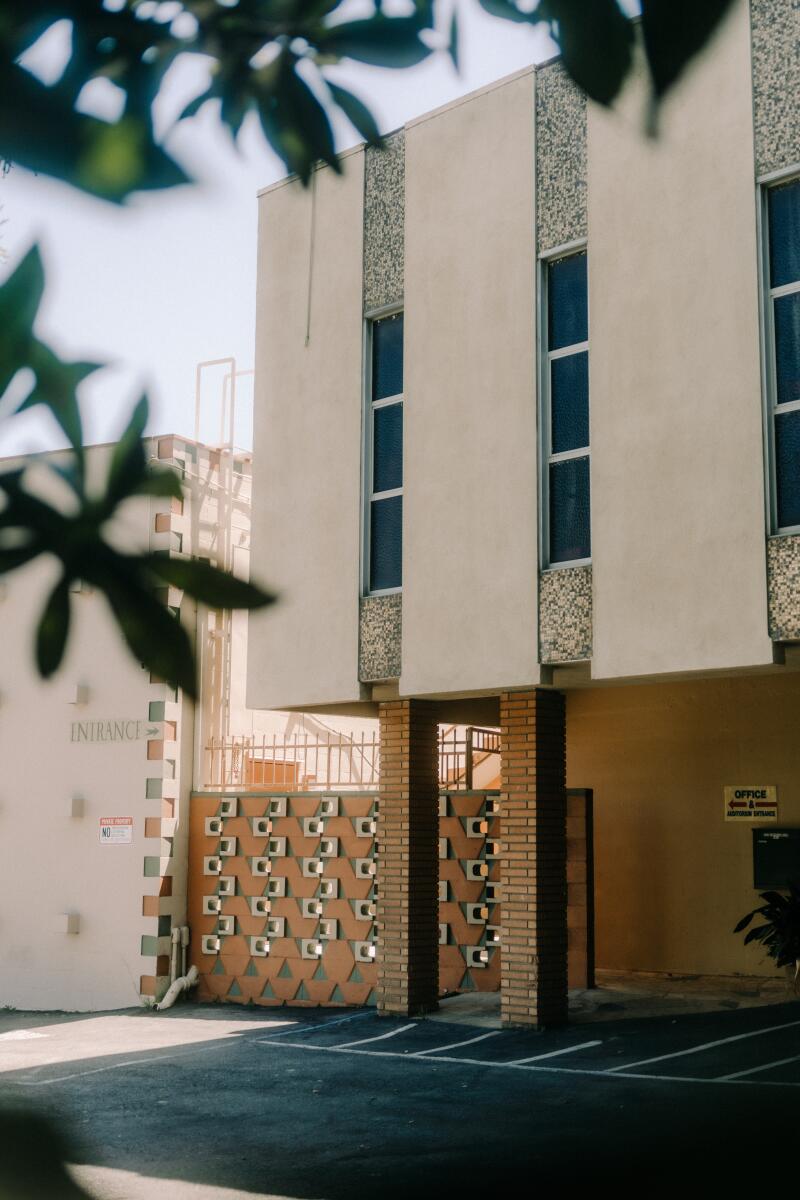
(Elizabeth Weinberg / For The Times)
On a warm Friday evening in August, the courtyard was full ahead of a sold-out magic show starring Rob Zabrecky, with interludes by subversive performer Billy the Mime. There were several Magic Castle members sipping wine before the show began. There were a fair number of clowns (without their makeup) as well.
Deidre Scott, who had heard about the performance through friends in the clowning community, took a seat in the old auditorium, which looks like a high school theater circa 1968 except for the large paintings inspired by tarot cards lining the walls. It was her first time at the Philosophical Research Society and she was curious to learn more.
“I was on their website today looking at all their classes and I was like, ‘What is this? Do I want to work there? Do I want to live there? What is it?’” she said.
A photo essay examining the misunderstood world of clowns — it turns out they aren’t just for kids birthday parties.
Many of the people who work at the Philosophical Research Society, and who are responsible for its current renaissance, stumbled upon it years ago, fell in love, and never left.
Kelly Carmena, deputy executive director and head librarian, first came in 2014 to research the symbolism of the spiral for an artist friend. She started volunteering in the library almost immediately and soon worked there part-time. As her responsibilities at the Philosophical Research Society grew over the years, she became instrumental in bringing more people — especially artists — into its orbit.
“I think there has always been a relationship between arts and esotericism,” she said. “What I hear now from a lot of people is that they can’t express this side of themselves at other institutions and organizations.”
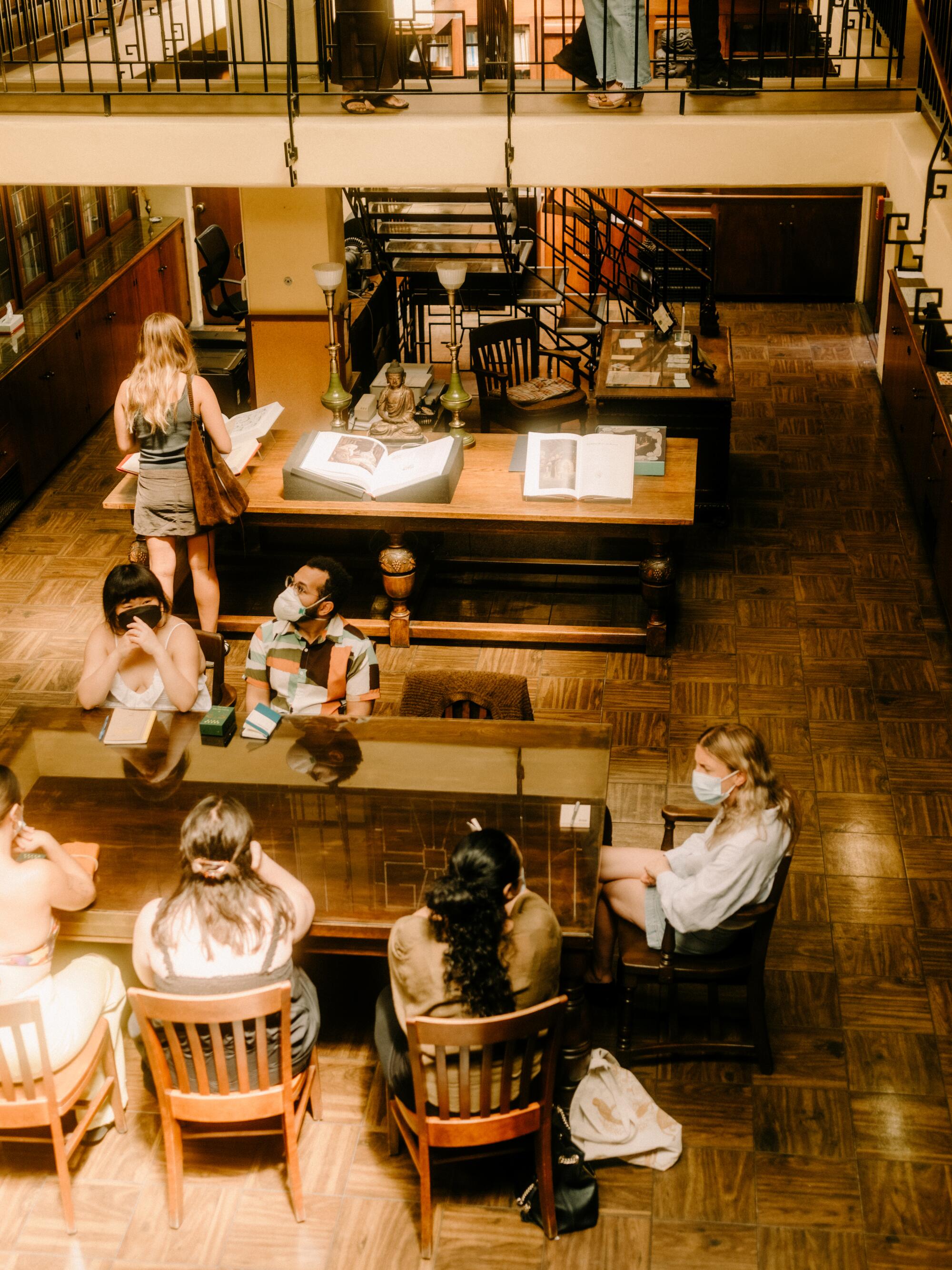
Welcoming a wider pool of people to the campus is also important to marketing manager Elizabeth T. Vazquez. The 32-year-old started attending lectures at the nonprofit in 2016 and became an artist-in-residence in 2021 — creating a solo art show and a monthly reading and discussion group that included books on postcolonial astrology and an anthology of Indigenous science fiction. They started working for the nonprofit last September.
“It was very important to me to bring more diversity and more queer folk here,” Vazquez said. “And I think that has been part of what we’ve been seeing too — much, much more diversifying than the first few years I was coming here.”
Beyond the institution’s paid employees, there is also a community of fans and supporters who are helping to expand its reach. Writer-in-residence Mandy Kahn hosts a monthly poetry night in the library and teaches a free weekly class on building inner and world peace. Floating, an L.A.-based collective that presents “sonic gatherings,” is a frequent collaborator and held monthly concerts in the courtyard throughout the summer. Jessica Hundley, a regular at the library since 1998 and author and editor of Taschen’s Library of Esoterica series, has been hosting events with artists, musicians and writers on the campus for the past three years.
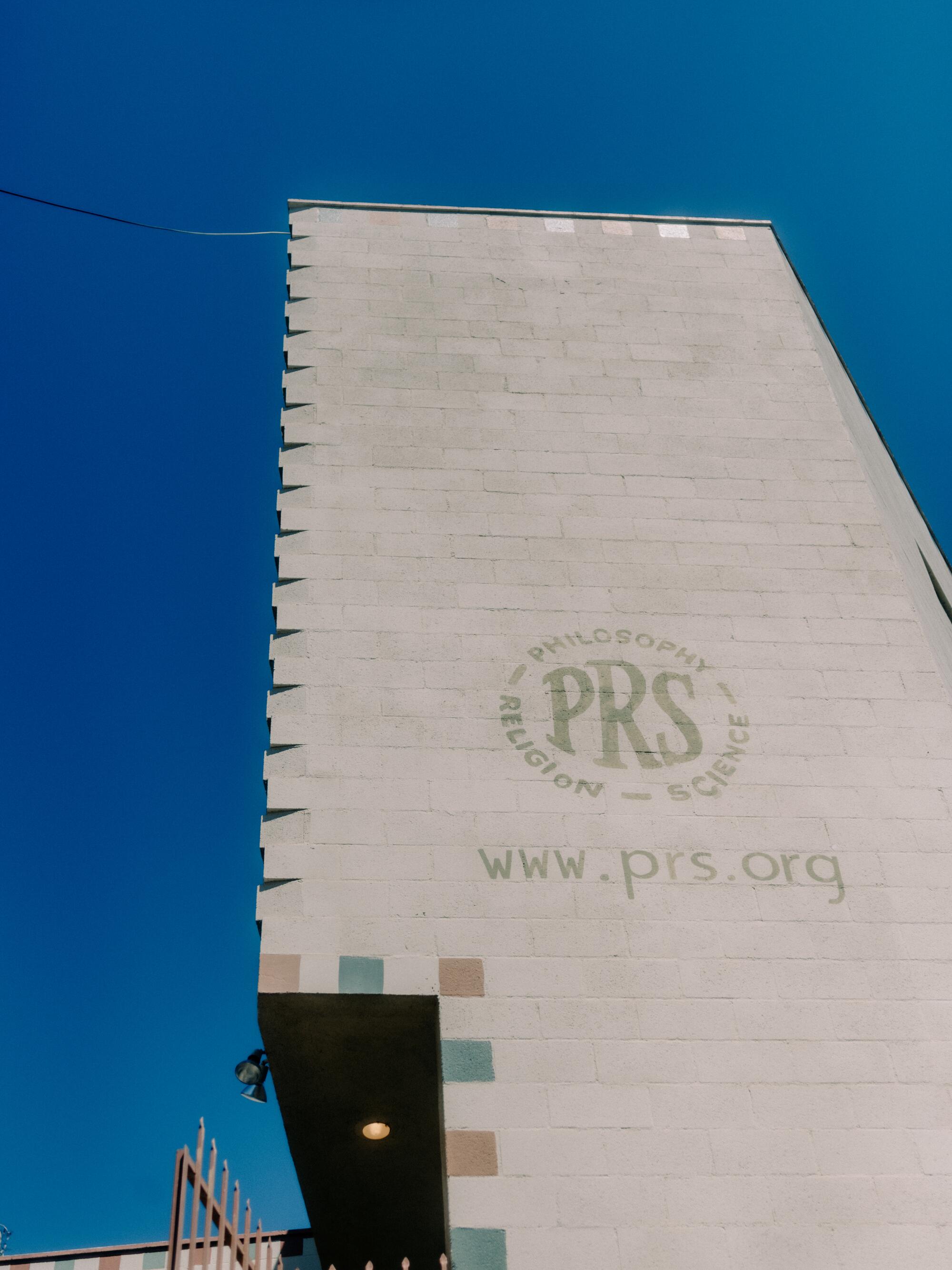
“We live in an amazing city, but there’s not a lot of enduring historical places that have been here for that long,” Hundley said. “This is one of them.”
Everyone who loves the Philosophical Research Society agrees that it is still figuring out how to become a modern cultural space while remaining connected to its strange and mystical history. But Pillsbury believes its current iteration is closer to Hall’s original vision then it has been in a long time.
“We’re moving in a new direction that hearkens back to our roots and will make us viable for a long time,” he said. “I’d like to think in terms of centuries, because the ideas are eternal.”
More to Read
Sign up for The Wild
We’ll help you find the best places to hike, bike and run, as well as the perfect silent spots for meditation and yoga.
You may occasionally receive promotional content from the Los Angeles Times.
